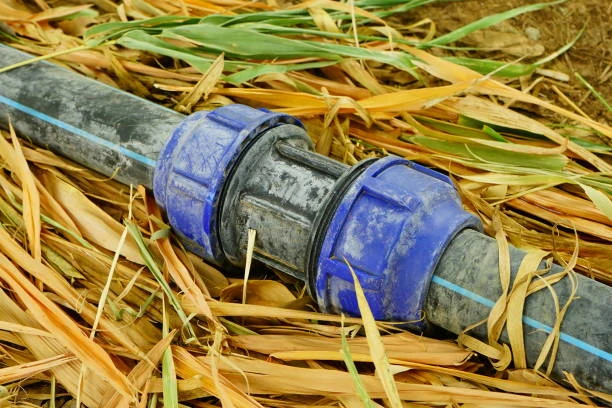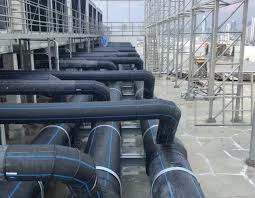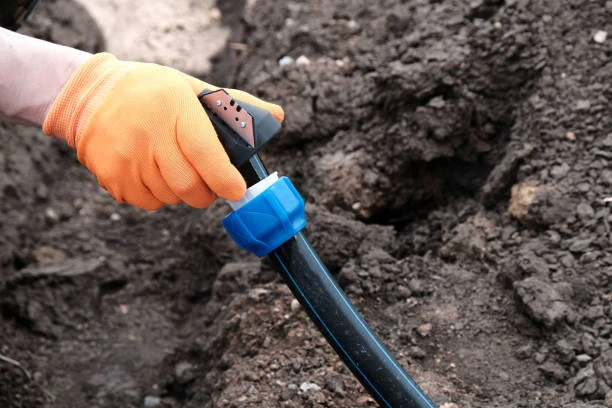High-Density Polyethylene HDPE pipes and fittings have emerged as a leading choice for various applications in water supply, drainage, and industrial systems. Their unique properties offer several advantages that make them superior to traditional piping materials. In this article, we’ll explore the numerous benefits of HDPE pipes and fittings, shedding light on why they’re becoming increasingly popular.
1. Durability and Longevity
1.1. Corrosion Resistance
One of the standout features of HDPE is its resistance to corrosion. Unlike metal pipes that can rust over time, HDPE is unaffected by moisture and many chemicals, ensuring a long-lasting performance.
1.2. Impact Resistance
HDPE pipes can withstand impacts better than many other materials. This resilience makes them suitable for challenging environments, including areas prone to soil movement.
2. Lightweight and Easy to Handle
2.1. Reduced Labor Costs
HDPE pipes are significantly lighter than metal or concrete pipes, making them easier to transport and install. This lightweight nature translates to reduced labor costs and faster installation times.
2.2. Flexibility in Installation
The flexibility of HDPE allows for easier bending and maneuvering around obstacles during installation. This adaptability minimizes the need for extensive excavation.
3. Cost-Effectiveness
3.1. Lower Installation Costs
The ease of handling and installation can lead to significant savings. Fewer workers and less time on-site mean reduced overall project costs.
3.2. Low Maintenance Requirements
HDPE pipes are designed to last, requiring minimal maintenance over their lifespan. This longevity translates into lower long-term costs for businesses and municipalities.
4. Environmentally Friendly
4.1. Recyclability
HDPE is fully recyclable, making it a sustainable choice for modern infrastructure. Many manufacturers have programs to reclaim and recycle old HDPE materials.
4.2. Energy Efficiency
The production process for HDPE typically requires less energy than traditional materials, contributing to a lower carbon footprint.
5. Versatility in Applications
5.1. Wide Range of Uses
HDPE pipes are suitable for various applications, including municipal water supply, sewage systems, agricultural irrigation, and industrial processes. Their versatility makes them a go-to choice across different sectors.
5.2. Adaptable to Various Conditions
Whether in frozen ground, sandy soil, or under high pressure, HDPE pipes can perform reliably. Their ability to adapt to different environmental conditions is a significant advantage.
6. High Flow Capacity
HDPE pipes feature smooth internal surfaces that minimize friction, allowing for higher flow rates. This property makes them efficient for transporting water and other fluids.

7. Joint Integrity
7.1. Fusion Welding Technology
HDPE pipes can be joined using fusion welding techniques, creating a seamless, leak-proof connection. This method ensures the integrity of the system and reduces the risk of leaks.
7.2. Electrofusion Fittings
Electrofusion is another reliable method for joining HDPE pipes, using electric current to heat and bond the fittings. This technology enhances the durability of the joints.
8. Resistance to Temperature Variations
HDPE pipes can handle a wide range of temperatures, making them suitable for hot and cold water applications. Their ability to maintain performance under varying conditions is a significant asset.
9. Safety in Use
9.1. Non-Toxic Properties
HDPE is a safe material for transporting drinking water, as it does not leach harmful chemicals. This safety feature is crucial for public health.
9.2. Reduced Risk of Contamination
The smooth surfaces of HDPE pipes help prevent the growth of biofilm and bacteria, ensuring that the water remains clean and safe.
10. Conclusion
HDPE pipes and fittings offer a multitude of advantages, from durability and cost-effectiveness to environmental sustainability. As infrastructure needs evolve, HDPE continues to prove itself as a reliable choice for various applications. Its unique properties not only ensure longevity and efficiency but also promote a safer and greener future.


















